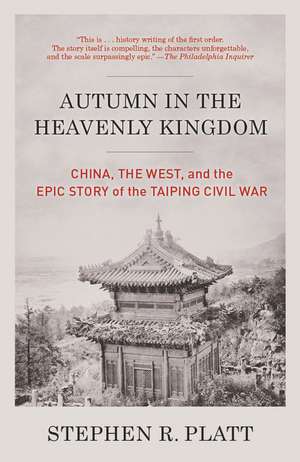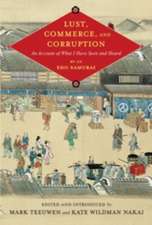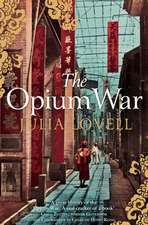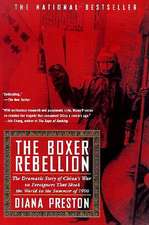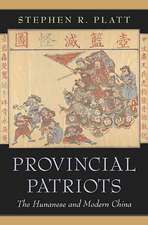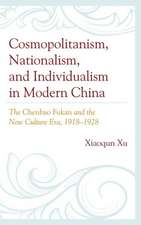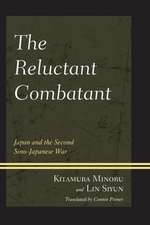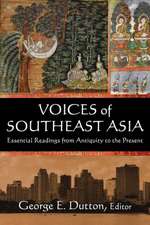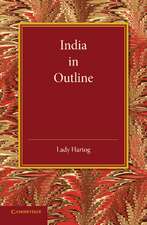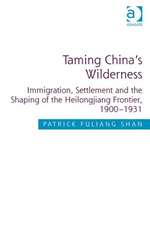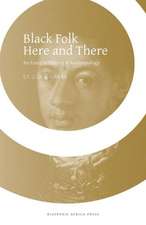Autumn in the Heavenly Kingdom: China, the West, and the Epic Story of the Taiping Civil War
Autor Stephen R. Platten Limba Engleză Paperback – 10 dec 2012
Vezi toate premiile Carte premiată
Cundill Prize (2012)
A gripping account of China’s nineteenth-century Taiping Rebellion, one of the largest civil wars in history. Autumn in the Heavenly Kingdom brims with unforgettable characters and vivid re-creations of massive and often gruesome battles—a sweeping yet intimate portrait of the conflict that shaped the fate of modern China.
The story begins in the early 1850s, the waning years of the Qing dynasty, when word spread of a major revolution brewing in the provinces, led by a failed civil servant who claimed to be the son of God and brother of Jesus. The Taiping rebels drew their power from the poor and the disenfranchised, unleashing the ethnic rage of millions of Chinese against their Manchu rulers. This homegrown movement seemed all but unstoppable until Britain and the United States stepped in and threw their support behind the Manchus: after years of massive carnage, all opposition to Qing rule was effectively snuffed out for generations. Stephen R. Platt recounts these events in spellbinding detail, building his story on two fascinating characters with opposing visions for China’s future: the conservative Confucian scholar Zeng Guofan, an accidental general who emerged as the most influential military strategist in China’s modern history; and Hong Rengan, a brilliant Taiping leader whose grand vision of building a modern, industrial, and pro-Western Chinese state ended in tragic failure.
This is an essential and enthralling history of the rise and fall of the movement that, a century and a half ago, might have launched China on an entirely different path into the modern world.
| Toate formatele și edițiile | Preț | Express |
|---|---|---|
| Paperback (2) | 101.88 lei 3-4 săpt. | +44.67 lei 6-12 zile |
| ATLANTIC BOOKS LTD – 4 iul 2013 | 101.88 lei 3-4 săpt. | +44.67 lei 6-12 zile |
| VINTAGE BOOKS – 10 dec 2012 | 111.53 lei 3-5 săpt. |
Preț: 111.53 lei
Nou
Puncte Express: 167
Preț estimativ în valută:
21.34€ • 22.34$ • 17.70£
21.34€ • 22.34$ • 17.70£
Carte disponibilă
Livrare economică 20 martie-03 aprilie
Preluare comenzi: 021 569.72.76
Specificații
ISBN-13: 9780307472212
ISBN-10: 0307472213
Pagini: 470
Ilustrații: 8 PP B&W/5 MAPS
Dimensiuni: 133 x 203 x 25 mm
Greutate: 0.48 kg
Editura: VINTAGE BOOKS
ISBN-10: 0307472213
Pagini: 470
Ilustrații: 8 PP B&W/5 MAPS
Dimensiuni: 133 x 203 x 25 mm
Greutate: 0.48 kg
Editura: VINTAGE BOOKS
Recenzii
“A refreshing and gripping account that illuminates how civil conflicts can suck in outsiders and why the West has had great difficulties in trying to maintain a façade of neutrality and protect its commercial interests at the same time. . . . Autumn in the Heavenly Kingdom may not have said the last word on the Taiping Rebellion, but the story it tells is powerful, dramatic, and unforgettable.” —Minxin Pei, San Francisco Chronicle
“Structurally, Stephen Platt’s Autumn in the Heavenly Kingdom is a thriller. . . . We read in starred reviews things like ‘the book brings history to life.’ We read these words so often that we have forgotten what they mean, but this book reminds us. It makes history immediate and personal, one that speaks to us on a sensory, moral, intellectual and emotional level. They should teach this one in schools.” —Gerard Martinez, San Antonio Express-News
“A compelling and often meticulous account. . . . Platt is at his best when dissecting the often absurd dynamics of Western intervention.” —Ross Perlin, The Daily Beast
“An intricate and compelling historical narrative rich in military campaigning, vivid personalities and, above all, diplomatic misunderstanding. When Confederate artillery fired on Fort Sumter in 1861, the Taiping rebellion had been raging for 10 years, and it would continue until rebel supply lines collapsed in 1864. With a wonderful flair for storytelling, Platt explores the relationship between the two conflicts. . . . Authoritative and fascinating, Platt’s work will interest both the specialist and the casual reader (like me) who wants to learn about an event that presaged China’s entry into the modern world.” —Tom Zelman, Minneapolis Star Tribune
“China’s brutal Taiping Civil War erupted in the 1850s and raged until the fall of rebel-held Nanjing in 1864. The bloodbath paralleled our own North-South conflict, but dwarfed it in terms of casualties, geography and global fallout. . . . [Platt] juxtaposes the competing ideologies and leaders of the ruling Manchu Qing dynasty and the Hunan Taiping rebels with savvy and assurance. By neatly folding in the machinations of the British, Platt paints a picture of combat dire enough to have choked the Yangtze’s flow several times with discarded victims.” —Jonathan E. Lazarus, Newark Star-Ledger
“Platt has skillfully converted his erudition into an eminently general-interest treatment of what may have been the most lethal civil war in history.” —Gilbert Taylor, Booklist (starred review)
“Splendid. . . . An upheaval that led to the deaths of 20 million, dwarfing the simultaneously fought American Civil War, deserves to be better known, and Platt accomplishes this with a superb history of a 19th-century China faced with internal disorder and predatory Western intrusions.” —Publishers Weekly (starred review)
“Stephen Platt’s history of the Taiping rebellion in mid-19th century China sheds an authoritative and comprehensive window on a major event in world history that up until now has too often been consigned to a footnote in the West. It is a critically important achievement.” —Robert D. Kaplan, author of Monsoon: The Indian Ocean and the Future of American Power
“Stephen Platt brings to vivid life a pivotal chapter in China’s history that has been all but forgotten: the Taiping Rebellion in the mid-nineteenth century, which cost one of the greatest losses of life of any war in history. It had far-reaching consequences that still reverberate in contemporary China. Autumn in the Heavenly Kingdom is a fascinating work by a first-class historian and superb writer.” —Henry Kissinger
“A splendid example of finely calibrated historical narrative. The civil war that erupted in China between the early 1850s and 1864 was perhaps the bloodiest in human history; with a wealth of vivid detail, Platt shows how the fates of China’s rulers and many millions of their subjects were manipulated by British diplomatic and commercial interests, as well as colored by the rebels’ own unorthodox religious and political beliefs. It is a tragic and powerful story.”
—Jonathan Spence, author of The Search for Modern China
“The ambitious scale and lively writing make Platt's book an excellent entree into a pivotal event in world history.” —CHOICE Magazine
“Structurally, Stephen Platt’s Autumn in the Heavenly Kingdom is a thriller. . . . We read in starred reviews things like ‘the book brings history to life.’ We read these words so often that we have forgotten what they mean, but this book reminds us. It makes history immediate and personal, one that speaks to us on a sensory, moral, intellectual and emotional level. They should teach this one in schools.” —Gerard Martinez, San Antonio Express-News
“A compelling and often meticulous account. . . . Platt is at his best when dissecting the often absurd dynamics of Western intervention.” —Ross Perlin, The Daily Beast
“An intricate and compelling historical narrative rich in military campaigning, vivid personalities and, above all, diplomatic misunderstanding. When Confederate artillery fired on Fort Sumter in 1861, the Taiping rebellion had been raging for 10 years, and it would continue until rebel supply lines collapsed in 1864. With a wonderful flair for storytelling, Platt explores the relationship between the two conflicts. . . . Authoritative and fascinating, Platt’s work will interest both the specialist and the casual reader (like me) who wants to learn about an event that presaged China’s entry into the modern world.” —Tom Zelman, Minneapolis Star Tribune
“China’s brutal Taiping Civil War erupted in the 1850s and raged until the fall of rebel-held Nanjing in 1864. The bloodbath paralleled our own North-South conflict, but dwarfed it in terms of casualties, geography and global fallout. . . . [Platt] juxtaposes the competing ideologies and leaders of the ruling Manchu Qing dynasty and the Hunan Taiping rebels with savvy and assurance. By neatly folding in the machinations of the British, Platt paints a picture of combat dire enough to have choked the Yangtze’s flow several times with discarded victims.” —Jonathan E. Lazarus, Newark Star-Ledger
“Platt has skillfully converted his erudition into an eminently general-interest treatment of what may have been the most lethal civil war in history.” —Gilbert Taylor, Booklist (starred review)
“Splendid. . . . An upheaval that led to the deaths of 20 million, dwarfing the simultaneously fought American Civil War, deserves to be better known, and Platt accomplishes this with a superb history of a 19th-century China faced with internal disorder and predatory Western intrusions.” —Publishers Weekly (starred review)
“Stephen Platt’s history of the Taiping rebellion in mid-19th century China sheds an authoritative and comprehensive window on a major event in world history that up until now has too often been consigned to a footnote in the West. It is a critically important achievement.” —Robert D. Kaplan, author of Monsoon: The Indian Ocean and the Future of American Power
“Stephen Platt brings to vivid life a pivotal chapter in China’s history that has been all but forgotten: the Taiping Rebellion in the mid-nineteenth century, which cost one of the greatest losses of life of any war in history. It had far-reaching consequences that still reverberate in contemporary China. Autumn in the Heavenly Kingdom is a fascinating work by a first-class historian and superb writer.” —Henry Kissinger
“A splendid example of finely calibrated historical narrative. The civil war that erupted in China between the early 1850s and 1864 was perhaps the bloodiest in human history; with a wealth of vivid detail, Platt shows how the fates of China’s rulers and many millions of their subjects were manipulated by British diplomatic and commercial interests, as well as colored by the rebels’ own unorthodox religious and political beliefs. It is a tragic and powerful story.”
—Jonathan Spence, author of The Search for Modern China
“The ambitious scale and lively writing make Platt's book an excellent entree into a pivotal event in world history.” —CHOICE Magazine
Notă biografică
Stephen R. Platt received his Ph.D. in Chinese history from Yale University, where his dissertation was awarded the Theron Rockwell Field Prize. He is an associate professor at the University of Massachusetts, Amherst, and is also the author of Provincial Patriots: The Hunanese and Modern China. An undergraduate English major, he spent two years after college as a teacher in the Yale-China program in Hunan province. His research has been supported by the Fulbright program, the National Endowment for the Humanities, and the Chiang Ching-Kuo Foundation. He lives in Greenfield, Massachusetts, with his wife and daughter.
Extras
CHAPTER 1
THE PREACHER'S ASSISTANT
Hong Kong in 1852 was a diseased and watery place, a rocky island off the southern shore of the Qing Empire where the inhabitants lived in dread of what one described as "the miasma set free from the ground which was everywhere being turned up." A small British settlement sat between the mountains and the bay, but the emerald and sapphire glory of the scene belied the darkness below the surface. Leaving the concentration of godowns, military barracks, and trading firms along the colony's nostalgically named central streets (The Queen's Road, Wellington Street, Holly-wood Road), one could find the grandest vistas in the gravel paths that led up the coast into the hills, but the European settlement soon gave way to scattered Chinese houses among fields growing rice and sweet potatoes unchanged in the decade since the British took the island as their prize in the Opium War. Some of the wealthier merchants had built opulent mansions in those hills, with terraced gardens commanding a view of the harbor and town. But as though their builders had strayed too far from the protection of the settlement, the inhabitants of those houses sickened and died. Marked as "homes of fever or death," the ghostly manors sat silent and abandoned, their empty gaze passing judgment on the settlers below.
One of those settlers was Theodore Hamberg, a young Swedish missionary with a thin chinstrap beard that set off his delicate, nearly effeminate features. He was blessed with a lovely voice, and in his youth in Stockholm he had sung together with Jenny Lind, the "Swedish Nightingale." But while Lind went on to conquer the opera halls of Europe and America, bringing suitors such as Frédéric Chopin and Hans Christian Andersen to their knees along the way, Hamberg's life took an entirely different path. His strong tenor found its destined outlet in preaching, and in 1847 he left his native Sweden to sail to the opposite end of the world, to this malarial colony of Hong Kong, with the sole purpose of bringing the Chinese to their knees after a different fashion.
Theodore Hamberg might well have lived his life in obscurity, for his proudest accomplishments meant little to anyone beyond a small circle of Protestant missionaries. He was one of the first Europeans in his generation to brave the Chinese countryside, leaving the relative safety of Hong Kong to preach in a village outside the Chinese trading port of Canton a hundred miles up the Pearl River (though for health reasons he finally returned to the colony). He was also the first to learn to speak the dialect of the Hakka, or "guest people"-a gypsy minority thickly populous in south China. All of that might have meant little to anyone in the world outside except that one day in the late spring of 1852, one of his converts from the countryside brought a guest to meet him, a short, round-faced Hakka named Hong Rengan who had a remarkable story to tell.
The strangest thing about this Hakka, Hamberg recalled from their first meeting, was how much he already seemed to know about God and Jesus despite the fact that he hailed from well beyond the narrow reach of the Hong Kong missionaries. Hamberg listened with curiosity as Hong Rengan gave a baffling account of the events leading to his arrival in Hong Kong. He spoke of visions and battles, armies and congregations of believers, a heavenly prophet from among the Hakkas. He had, or at least so he claimed, been hunted by the agents of the Qing dynasty and had lived in disguise under an assumed name. He had been kidnapped, had escaped, and had lived for four days in the forest, six days in a cave. None of it made much sense, though, and Hamberg confessed, "I could form no clear conception of the whole matter." Not knowing what to make of the story, he asked Hong Rengan to write it down, which he did, and then-though Hamberg had expected him to stay for baptism-he left without explanation. Hamberg put the sheets of paper with Hong Rengan's story into his desk and turned his mind to other matters. He would think little of them again for nearly a year, until the spring of 1853 when the news came that Nanjing had fallen in a torrent of blood, and Hamberg realized that the strange events sketched out in Hong Rengan's tale meant more than he had ever imagined.
News of the mounting upheaval in China reached Hamberg and the other settlers in Hong Kong and up the coast in Shanghai only in scattered and vague accounts. From Chinese government reports there seemed no pattern to the rising disorder of the early 1850s, no principle or cohesion. Local uprisings and small-scale banditry in China's countryside were a perennial thorn in the side of the imperial authorities, hardly anything new or noteworthy, though they certainly did seem to have increased in the years following the Opium War. Chinese travelers and clandestine Catholic missionaries deep in the interior forwarded rumors of some larger movement led by a man known as "Tian De," or "Heavenly Virtue," but just as many accounts reported that the man was dead, killed by imperial forces, or that he had never existed in the first place. In the absence of any clear news, the foreigners in their coastal ports paid little attention, concerned only that bandits might disrupt the production of tea and silk.
But the fall of the southern capital of Nanjing in 1853 brought a massive civil war right to the doorstep of the foreign settlement in Shanghai, which was just two hundred miles downriver at the mouth of the sea. Half a million rebels calling themselves the Taiping Tianguo ("Heavenly Kingdom of Great Peace") flooded down the Yangtze from central China on a grand flotilla of commandeered ships to Nanjing, leaving a swath of emptied cities and shattered imperial defenses behind them, and the debate was settled; this was no mere bandit uprising. Fear gripped the city of Shanghai. There was no direct communication with Nanjing, no concrete information (the American steamer Susquehanna tried to sail upriver to Nanjing to investigate but ran aground). Rumors spread that the insurgents would next march on Shanghai to attack the foreigners, and the city's Chinese population boarded up their houses, packed up their furniture, and took to riverboats or fled into the countryside for safety. The foreign settlers called up their unready defenses, rallying a haphazard volunteer defense corps to man the city walls and bringing up the few ships in ready reach-two British steamers and a brig-of- war, and one steamer each for the French and Americans.
But there it ended, at least for the time being. The Taiping did not march on Shanghai, and the city's vigilance eased off. Instead, the rebels set their targets northward toward Beijing, the capital of the Manchu rulers, and dug in for a long and bloody campaign with Nanjing as their base of operations. Their "Heavenly Capital," as Nanjing was now renamed, lay tantalizingly just out of reach of Shanghai. One British ship did manage to visit in late April 1853 but brought back conflicting impressions of what was happening there, the clearest opinion being that of the British plenipotentiary, who declared the Taiping to have an ideology of "superstition and nonsense." The visitors learned nothing about the rebels' origins.
Despite the scarcity of clear information, raw accounts of the civil war in China radiated outward from Shanghai and Hong Kong to capture the imagination of the Western world. Europe had been through its own convulsions just five years earlier with the revolutions of 1848, and the events in China seemed a remarkable parallel: the downtrodden people of China, oppressed by their Manchu overlords, had, it seemed, risen up to demand satisfaction. The Economist called it "a social change or convulsion such as have of late afflicted Europe" and mused that "it is singular to find similar commotions at the same time in Asia and Europe." Here was evidence that the empire at the other end of the world was now connected to the economic and political systems of the West.
Karl Marx, in 1853 a London correspondent for the New-York Daily Tribune struggling to give shape to his ideas on capitalism, likewise considered the rebellion in China to be a sign of China's integration into the global economy, describing it as the end result of Britain's forcing China open to foreign trade in the recent Opium War. In Marx's terminology, what was happening in China was not merely a rebellion or a hodgepodge of uprisings but "one formidable revolution," one that demonstrated the interconnectedness of the industrial world. Indeed, it was in China, he argued, that one could see the future of the West: "the next uprising of the people of Europe, and their next movement for republican freedom and economy of Government," he wrote, "may depend more probably on what is now passing in the Celestial Empire- the very opposite of Europe-than on any other political cause that now exists."
As he explained it, the disorder in China had its roots in the opium trade; a decade earlier, Britain had cracked China's markets open with its warships, and in doing so it had undermined the "superstitious faith" of the Chinese in their ruling dynasty. Exposure to the world meant the destruction of the old order, he believed, for "dissolution must follow as surely as that of any mummy carefully preserved in a hermetically sealed coffin, whenever it is brought into contact with the open air." But the effects of the Qing dynasty's dissolution would not be limited to China itself. The whole of the Taiping Revolution was, in his mind, Britain's fault, and now the effects of her actions overseas were going to be felt back home: "the question," he wrote, "is how that revolution will in time react on England, and through England on Europe."
Marx predicted that the loss of China's markets to the Taiping Revolution would undermine British exports of cotton and wool. Merchants in a chaotic China would accept only bullion in exchange for their goods, sapping Britain's stores of precious metals. Worse, the revolution would cut off England's source of tea imports, and the price of tea (to which most of the British were addicted) would spike in England at the same time that a poor harvest in Western Europe looked likely to send food prices through the roof, reducing still further the demand for manufactured goods and undermining the whole manufacturing industry on which Britain's economy depended. "It may be safely augured," Marx concluded, "that the Chinese revolution will throw the spark into the overloaded mine of the present industrial system and cause the explosion of the long-prepared general crisis, which, spreading abroad, will be closely followed by political revolutions on the Continent."
If Marx was keen to convince the readers of the New-York Daily Tribune that the Chinese civil war was one of class struggle and economic revolution analogous to the movements in Europe, the editors of the Daily Picayune in the southern slave port of New Orleans saw it in rather different terms, after their own particular vision of the world. It was, as they saw it, a racial war, and China was a slave state in upheaval. The Taiping had emerged, the editors explained, from the southern provinces of Guangxi and Guangdong, whose inhabitants were "principally of the primitive Chinese race." The northern Manchus, in contrast, were "the ruling race in China" who had taken the throne two hundred years earlier, since which time "China has been accordingly ruled as a conquered country by its masters." The two races never mixed, they explained, and in accordance with their southern vision of a harmonious slave-based society, the Picayune offered that in China "The quiet, patient, laboring millions have submitted to their masters mostly with exemplary gentleness." The sole threat to the stability of this Manchu-Chinese country of peacefully coexisting masters and slaves was these "primitive" people of south China who refused to submit to the yoke. The Taiping Rebellion, then, was a dark analogy to an uprising of African slaves in the United States.
The London Times, for its part, was the most prescient of observers, honing in immediately on the question of whether Britain should send its navy into the Chinese conflict and, if so, on which side. In an editorial on May 17, 1853, just after the news of Nanjing's fall reached London, an editorial in The Times noted that the Taiping seemed unstoppable and that "according to all computable chances, they will succeed thus far in subverting the Government of China." The Times had also run a report from a Shanghai paper asking whether "a change of masters" was something desired by the Chinese nation at large, offering that the Taiping-though hardly beloved in northern China-represented a force of change that was indeed welcome to the Chinese, and "throughout the country the feeling seems to be growing deeper that the exactions and oppressions of the mandarins are no longer to be borne." By the end of the summer, The Times declared flatly that the rebellion in China was "in all respects the greatest revolution the world has yet seen."
But the rebels themselves were a cipher. The reader of The Times would easily conclude that the Taiping enjoyed the support, grudging at least, of the Chinese people and were poised to overthrow the Manchus and usher in a new era of government. But the editors also sounded a note of caution about Britain's ignorance. "We are without any substantial information as to the origin or objects of the rebellion," they wrote. "We know that the existing Government of China is likely to be subverted in a civil war, but nothing more." Britain, they worried, simply didn't know enough about the nature or ideology of the rebels to decide whether it should support or encourage them: "We cannot tell in the case before us on which side our interest or our duties may lie-whether the insurrection is justifiable or unjustifiable, promising or unpromising; whether the feelings of the people are involved in it or not, or whether its success would bring a change for the better or worse, or any change at all, in our own relations with the Chinese." As it turned out, however, answers to the most pressing of these questions-of the origins of the rebellion, of who the Taiping really were and what they believed in-were to be found in Hong Kong, scribbled on a few stray sheets of paper stuffed into a drawer in Theodore Hamberg's desk.
Excerpted from the hardcover edition
THE PREACHER'S ASSISTANT
Hong Kong in 1852 was a diseased and watery place, a rocky island off the southern shore of the Qing Empire where the inhabitants lived in dread of what one described as "the miasma set free from the ground which was everywhere being turned up." A small British settlement sat between the mountains and the bay, but the emerald and sapphire glory of the scene belied the darkness below the surface. Leaving the concentration of godowns, military barracks, and trading firms along the colony's nostalgically named central streets (The Queen's Road, Wellington Street, Holly-wood Road), one could find the grandest vistas in the gravel paths that led up the coast into the hills, but the European settlement soon gave way to scattered Chinese houses among fields growing rice and sweet potatoes unchanged in the decade since the British took the island as their prize in the Opium War. Some of the wealthier merchants had built opulent mansions in those hills, with terraced gardens commanding a view of the harbor and town. But as though their builders had strayed too far from the protection of the settlement, the inhabitants of those houses sickened and died. Marked as "homes of fever or death," the ghostly manors sat silent and abandoned, their empty gaze passing judgment on the settlers below.
One of those settlers was Theodore Hamberg, a young Swedish missionary with a thin chinstrap beard that set off his delicate, nearly effeminate features. He was blessed with a lovely voice, and in his youth in Stockholm he had sung together with Jenny Lind, the "Swedish Nightingale." But while Lind went on to conquer the opera halls of Europe and America, bringing suitors such as Frédéric Chopin and Hans Christian Andersen to their knees along the way, Hamberg's life took an entirely different path. His strong tenor found its destined outlet in preaching, and in 1847 he left his native Sweden to sail to the opposite end of the world, to this malarial colony of Hong Kong, with the sole purpose of bringing the Chinese to their knees after a different fashion.
Theodore Hamberg might well have lived his life in obscurity, for his proudest accomplishments meant little to anyone beyond a small circle of Protestant missionaries. He was one of the first Europeans in his generation to brave the Chinese countryside, leaving the relative safety of Hong Kong to preach in a village outside the Chinese trading port of Canton a hundred miles up the Pearl River (though for health reasons he finally returned to the colony). He was also the first to learn to speak the dialect of the Hakka, or "guest people"-a gypsy minority thickly populous in south China. All of that might have meant little to anyone in the world outside except that one day in the late spring of 1852, one of his converts from the countryside brought a guest to meet him, a short, round-faced Hakka named Hong Rengan who had a remarkable story to tell.
The strangest thing about this Hakka, Hamberg recalled from their first meeting, was how much he already seemed to know about God and Jesus despite the fact that he hailed from well beyond the narrow reach of the Hong Kong missionaries. Hamberg listened with curiosity as Hong Rengan gave a baffling account of the events leading to his arrival in Hong Kong. He spoke of visions and battles, armies and congregations of believers, a heavenly prophet from among the Hakkas. He had, or at least so he claimed, been hunted by the agents of the Qing dynasty and had lived in disguise under an assumed name. He had been kidnapped, had escaped, and had lived for four days in the forest, six days in a cave. None of it made much sense, though, and Hamberg confessed, "I could form no clear conception of the whole matter." Not knowing what to make of the story, he asked Hong Rengan to write it down, which he did, and then-though Hamberg had expected him to stay for baptism-he left without explanation. Hamberg put the sheets of paper with Hong Rengan's story into his desk and turned his mind to other matters. He would think little of them again for nearly a year, until the spring of 1853 when the news came that Nanjing had fallen in a torrent of blood, and Hamberg realized that the strange events sketched out in Hong Rengan's tale meant more than he had ever imagined.
News of the mounting upheaval in China reached Hamberg and the other settlers in Hong Kong and up the coast in Shanghai only in scattered and vague accounts. From Chinese government reports there seemed no pattern to the rising disorder of the early 1850s, no principle or cohesion. Local uprisings and small-scale banditry in China's countryside were a perennial thorn in the side of the imperial authorities, hardly anything new or noteworthy, though they certainly did seem to have increased in the years following the Opium War. Chinese travelers and clandestine Catholic missionaries deep in the interior forwarded rumors of some larger movement led by a man known as "Tian De," or "Heavenly Virtue," but just as many accounts reported that the man was dead, killed by imperial forces, or that he had never existed in the first place. In the absence of any clear news, the foreigners in their coastal ports paid little attention, concerned only that bandits might disrupt the production of tea and silk.
But the fall of the southern capital of Nanjing in 1853 brought a massive civil war right to the doorstep of the foreign settlement in Shanghai, which was just two hundred miles downriver at the mouth of the sea. Half a million rebels calling themselves the Taiping Tianguo ("Heavenly Kingdom of Great Peace") flooded down the Yangtze from central China on a grand flotilla of commandeered ships to Nanjing, leaving a swath of emptied cities and shattered imperial defenses behind them, and the debate was settled; this was no mere bandit uprising. Fear gripped the city of Shanghai. There was no direct communication with Nanjing, no concrete information (the American steamer Susquehanna tried to sail upriver to Nanjing to investigate but ran aground). Rumors spread that the insurgents would next march on Shanghai to attack the foreigners, and the city's Chinese population boarded up their houses, packed up their furniture, and took to riverboats or fled into the countryside for safety. The foreign settlers called up their unready defenses, rallying a haphazard volunteer defense corps to man the city walls and bringing up the few ships in ready reach-two British steamers and a brig-of- war, and one steamer each for the French and Americans.
But there it ended, at least for the time being. The Taiping did not march on Shanghai, and the city's vigilance eased off. Instead, the rebels set their targets northward toward Beijing, the capital of the Manchu rulers, and dug in for a long and bloody campaign with Nanjing as their base of operations. Their "Heavenly Capital," as Nanjing was now renamed, lay tantalizingly just out of reach of Shanghai. One British ship did manage to visit in late April 1853 but brought back conflicting impressions of what was happening there, the clearest opinion being that of the British plenipotentiary, who declared the Taiping to have an ideology of "superstition and nonsense." The visitors learned nothing about the rebels' origins.
Despite the scarcity of clear information, raw accounts of the civil war in China radiated outward from Shanghai and Hong Kong to capture the imagination of the Western world. Europe had been through its own convulsions just five years earlier with the revolutions of 1848, and the events in China seemed a remarkable parallel: the downtrodden people of China, oppressed by their Manchu overlords, had, it seemed, risen up to demand satisfaction. The Economist called it "a social change or convulsion such as have of late afflicted Europe" and mused that "it is singular to find similar commotions at the same time in Asia and Europe." Here was evidence that the empire at the other end of the world was now connected to the economic and political systems of the West.
Karl Marx, in 1853 a London correspondent for the New-York Daily Tribune struggling to give shape to his ideas on capitalism, likewise considered the rebellion in China to be a sign of China's integration into the global economy, describing it as the end result of Britain's forcing China open to foreign trade in the recent Opium War. In Marx's terminology, what was happening in China was not merely a rebellion or a hodgepodge of uprisings but "one formidable revolution," one that demonstrated the interconnectedness of the industrial world. Indeed, it was in China, he argued, that one could see the future of the West: "the next uprising of the people of Europe, and their next movement for republican freedom and economy of Government," he wrote, "may depend more probably on what is now passing in the Celestial Empire- the very opposite of Europe-than on any other political cause that now exists."
As he explained it, the disorder in China had its roots in the opium trade; a decade earlier, Britain had cracked China's markets open with its warships, and in doing so it had undermined the "superstitious faith" of the Chinese in their ruling dynasty. Exposure to the world meant the destruction of the old order, he believed, for "dissolution must follow as surely as that of any mummy carefully preserved in a hermetically sealed coffin, whenever it is brought into contact with the open air." But the effects of the Qing dynasty's dissolution would not be limited to China itself. The whole of the Taiping Revolution was, in his mind, Britain's fault, and now the effects of her actions overseas were going to be felt back home: "the question," he wrote, "is how that revolution will in time react on England, and through England on Europe."
Marx predicted that the loss of China's markets to the Taiping Revolution would undermine British exports of cotton and wool. Merchants in a chaotic China would accept only bullion in exchange for their goods, sapping Britain's stores of precious metals. Worse, the revolution would cut off England's source of tea imports, and the price of tea (to which most of the British were addicted) would spike in England at the same time that a poor harvest in Western Europe looked likely to send food prices through the roof, reducing still further the demand for manufactured goods and undermining the whole manufacturing industry on which Britain's economy depended. "It may be safely augured," Marx concluded, "that the Chinese revolution will throw the spark into the overloaded mine of the present industrial system and cause the explosion of the long-prepared general crisis, which, spreading abroad, will be closely followed by political revolutions on the Continent."
If Marx was keen to convince the readers of the New-York Daily Tribune that the Chinese civil war was one of class struggle and economic revolution analogous to the movements in Europe, the editors of the Daily Picayune in the southern slave port of New Orleans saw it in rather different terms, after their own particular vision of the world. It was, as they saw it, a racial war, and China was a slave state in upheaval. The Taiping had emerged, the editors explained, from the southern provinces of Guangxi and Guangdong, whose inhabitants were "principally of the primitive Chinese race." The northern Manchus, in contrast, were "the ruling race in China" who had taken the throne two hundred years earlier, since which time "China has been accordingly ruled as a conquered country by its masters." The two races never mixed, they explained, and in accordance with their southern vision of a harmonious slave-based society, the Picayune offered that in China "The quiet, patient, laboring millions have submitted to their masters mostly with exemplary gentleness." The sole threat to the stability of this Manchu-Chinese country of peacefully coexisting masters and slaves was these "primitive" people of south China who refused to submit to the yoke. The Taiping Rebellion, then, was a dark analogy to an uprising of African slaves in the United States.
The London Times, for its part, was the most prescient of observers, honing in immediately on the question of whether Britain should send its navy into the Chinese conflict and, if so, on which side. In an editorial on May 17, 1853, just after the news of Nanjing's fall reached London, an editorial in The Times noted that the Taiping seemed unstoppable and that "according to all computable chances, they will succeed thus far in subverting the Government of China." The Times had also run a report from a Shanghai paper asking whether "a change of masters" was something desired by the Chinese nation at large, offering that the Taiping-though hardly beloved in northern China-represented a force of change that was indeed welcome to the Chinese, and "throughout the country the feeling seems to be growing deeper that the exactions and oppressions of the mandarins are no longer to be borne." By the end of the summer, The Times declared flatly that the rebellion in China was "in all respects the greatest revolution the world has yet seen."
But the rebels themselves were a cipher. The reader of The Times would easily conclude that the Taiping enjoyed the support, grudging at least, of the Chinese people and were poised to overthrow the Manchus and usher in a new era of government. But the editors also sounded a note of caution about Britain's ignorance. "We are without any substantial information as to the origin or objects of the rebellion," they wrote. "We know that the existing Government of China is likely to be subverted in a civil war, but nothing more." Britain, they worried, simply didn't know enough about the nature or ideology of the rebels to decide whether it should support or encourage them: "We cannot tell in the case before us on which side our interest or our duties may lie-whether the insurrection is justifiable or unjustifiable, promising or unpromising; whether the feelings of the people are involved in it or not, or whether its success would bring a change for the better or worse, or any change at all, in our own relations with the Chinese." As it turned out, however, answers to the most pressing of these questions-of the origins of the rebellion, of who the Taiping really were and what they believed in-were to be found in Hong Kong, scribbled on a few stray sheets of paper stuffed into a drawer in Theodore Hamberg's desk.
Excerpted from the hardcover edition
Descriere
Descriere de la o altă ediție sau format:
Stephen R. Platt's Autumn in the Heavenly Kingdom tells the dramatic and disastrous story of the Taiping Rebellion: the bloodiest civil war in history.
Stephen R. Platt's Autumn in the Heavenly Kingdom tells the dramatic and disastrous story of the Taiping Rebellion: the bloodiest civil war in history.
Premii
- Cundill Prize Winner, 2012
